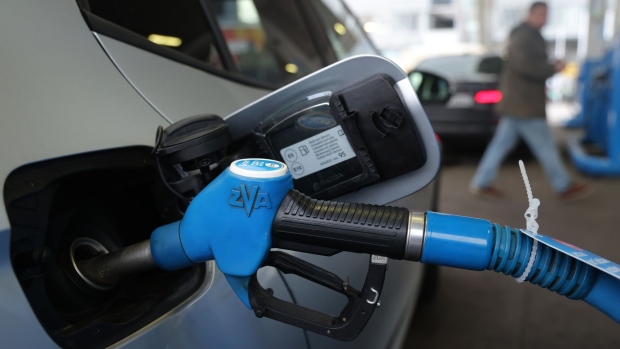Feb 22, 2024
EU Countries Warn German Gas Levy May Boost Russia Reliance
, Bloomberg News

(Bloomberg) -- Four European Union member states warned that a German levy on gas makes the fuel more expensive at a time when the bloc is trying to cut its reliance on Russian supplies.
The country introduced the charge at the peak of Europe’s energy crisis in 2022 after Russia curbed its gas flows and Germany had to spend billions of euros to fill its storage facilities.
Austria, Czech Republic, Hungary and Slovakia said the levy — which is paid by traders or utilities further down the supply chain and is meant to help cover the costs of refilling — undermines energy security in the wider region, according to a document seen by Bloomberg.
The objections to the levy come as the European Commission looks to end a deal with Russia on gas flows coming through Ukraine at the end of this year. The four countries are most exposed to any cutoff in supplies via the Ukraine route, which still accounts for around 14 billion cubic meters of gas to the EU.
The levy — which has been extended until March 2027 — increases the cost of gas exported from Germany, according to the paper, and has been raised several times since it was introduced to a current level of €1.86 per megawatt hour. Liquefied natural gas from Germany is one of the key routes the EU envisages to help make up for a shortfall in Russian supplies.
“The increased transit costs disproportionately affect the Central and Eastern European region, making it more difficult for member states in this area to access gas imports from Western Europe,” according to the paper, which will be presented at the March 4 meeting of energy ministers.
“This could force some member states to rely more heavily on gas imports from Russia,” it added, “potentially increasing their geopolitical dependencies and undermining all efforts to diversify energy sources.”
Read more: Traders Turn Optimistic That Gas Will Keep Flowing Via Ukraine
The commission is set to propose extending coordinated demand-reduction measures for gas on Feb 27, according to a person familiar with the matter. Diplomats from member states will seek to reach a political deal on the proposal on March 1 so that it can be signed off by energy ministers on March 4.
An analysis by the commission says that even the countries most reliant on Russian gas coming via Ukraine will be able to secure alternative supplies, including via the TurkStream pipeline and LNG, according to people familiar with the matter. The EU is preparing to rule out a deal to keep the flows going after the current agreement runs out at the end of the year.
Gas traders, however, remain optimistic that the fuel will still flow in some form through the route, potentially via bilateral agreements between energy companies or national transmission system operators. Contracts for the first quarter of 2025 have slumped by about 20% since the start of the year.
The four countries warned that the German levy would hinder diversification efforts and limit the possibility of sourcing alternative supplies.
“This, together with possible end of transit of Russian gas via Ukraine by the end of this year, will significantly reduce the security of supply of the whole region and make it more sensitive towards price fluctuations,” the paper said.
A spokesperson for Germany’s Economy Ministry said officials are aware of the letter and are in dialogue with the Commission. She declined to comment further on the discussions.
--With assistance from Ewa Krukowska and Petra Sorge.
(Updates with German Economy Ministry response in final paragraph.)
©2024 Bloomberg L.P.






